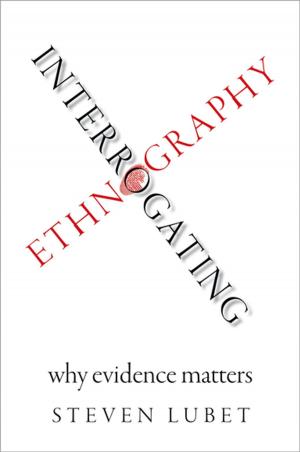| Author: | Brian C. McGing | ISBN: | 9780199885909 |
| Publisher: | Oxford University Press | Publication: | March 24, 2010 |
| Imprint: | Oxford University Press | Language: | English |
| Author: | Brian C. McGing |
| ISBN: | 9780199885909 |
| Publisher: | Oxford University Press |
| Publication: | March 24, 2010 |
| Imprint: | Oxford University Press |
| Language: | English |
Polybius' Histories is one of classical antiquity's great political narratives. Written in 40 books (of which only the first five are preserved in full), it originally set out to explain the dramatic rise of Rome in the half century from the war against Hannibal to the defeat and abolishment of the Macedonian kingdom in 167 BC. At a later stage, Polybius extended his coverage down to the Roman destruction of Carthage and Corinth in the year 146 BC. Although written in an ordinary Greek style, the work was composed with great care, clarity and skill, and provides a fascinating discourse on the politics of power. The author was himself a leading Greek politician and general who moved at ease among the most powerful men of the day and participated in many of the events that he describes. This volume provides an accessible introduction to this important work of classical literature. Beginning with an outline of its contents and organization, Brian McGing goes on to examine Polybius' theoretical approach to writing history and the careful artistry behind his work. Later chapters discuss Polybius' eventful life and how it affected his views on history and politics, and analyze the influential theorizing of book six of the Histories. In an epilogue, McGing chronicles the fate of Polybius' work after his death, from classical antiquity to the Renaissance to the American Revolution and up to the present. The volume includes detailed maps and a list of prominent persons.
Polybius' Histories is one of classical antiquity's great political narratives. Written in 40 books (of which only the first five are preserved in full), it originally set out to explain the dramatic rise of Rome in the half century from the war against Hannibal to the defeat and abolishment of the Macedonian kingdom in 167 BC. At a later stage, Polybius extended his coverage down to the Roman destruction of Carthage and Corinth in the year 146 BC. Although written in an ordinary Greek style, the work was composed with great care, clarity and skill, and provides a fascinating discourse on the politics of power. The author was himself a leading Greek politician and general who moved at ease among the most powerful men of the day and participated in many of the events that he describes. This volume provides an accessible introduction to this important work of classical literature. Beginning with an outline of its contents and organization, Brian McGing goes on to examine Polybius' theoretical approach to writing history and the careful artistry behind his work. Later chapters discuss Polybius' eventful life and how it affected his views on history and politics, and analyze the influential theorizing of book six of the Histories. In an epilogue, McGing chronicles the fate of Polybius' work after his death, from classical antiquity to the Renaissance to the American Revolution and up to the present. The volume includes detailed maps and a list of prominent persons.















